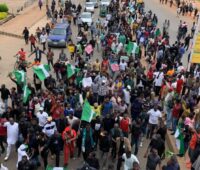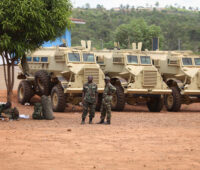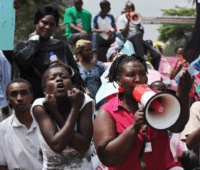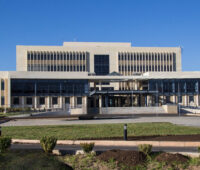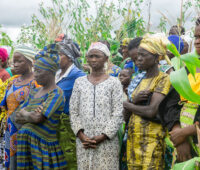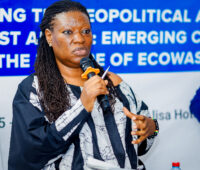Twenty-four years after the 2001 Jos crisis, political, religious, and traditional elites have transformed historical memories of violence into weapons of electoral manipulation.
Essays
Essays present critical analysis and debate on a pressing issue in African peacebuilding.
Democratic Governance and Electoral Transitions in Botswana: The 2024 Election and Implications for Africa’s Democracy
by Dr. Silindile N. MliloDemocratic consolidation in postcolonial Africa remains fraught with challenges, from entrenched ruling parties to military coups that have taken place in many countries on the continent.
Weak Institutions and Democratic Backsliding in Africa: Reflections on the New Wave of Military Coups in West Africa
by Hakeem OnapajoAfrica is witnessing a gradual backsliding of democracy, increasingly manifesting in the growing rate of military coups unfolding across the continent.
Special Issue – Defending Democracy in Africa: Challenges and Options
by Hakeem OnapajoIn their latest report documenting the experiences and attitudes of African citizens towards democracy in the past 25 years, Afrobarometer – Africa’s most extensive public opinion survey on democracy – concluded that “democracy is at risk.”
Between Field and Archive: Reflections on historical fieldwork in African post-genocide communities
by Dr. Thembani DubeThe Gukurahundi genocide, in which an estimated 20,000 people in the Matebeleland and Midlands regions of Zimbabwe were killed between 1982 and 1987,1, is one of the most devastating cases of violence in post-independent Africa.
Lesotho’s National Assembly and Senate at Loggerheads Over Peace Reforms
by Sean MalieheIn May 2023, the government of Lesotho tabled the Omnibus Bill (10th and 11th Amendment to the Constitution) in parliament. The bill contained 90 amendments to the Constitution.
Beyond the State: Traditional Authority in the Mediation of Protracted Conflict in Ghana
by Alhassan TahiruAt the heart of the protracted conflict in Ghana’s Upper East Region lies decades of complex chieftaincy disputes tracing back to colonial times.1 The Bawku conflict, as it is popularly referred to, involves the Mamprusi and Kusasi communities. It is driven by deeply rooted ethnic tensions and historical grievances, with each group laying claim to […]
Political and security implications of public reactions to unconstitutional changes of government in (West) Africa: The curious case of Burkina Faso
by Dr. Titilope F. AjayiIn the run-up of activities leading up to the 50th anniversary of the Economic Community of West African States (ECOWAS), the West Africa Network for Peacebuilding (WANEP), the Social Science Research Council (SSRC), and the Conflict Research Network (CORN) – West Africa, organised a high-level policy dialogue from 15-16 April in Accra, Ghana, on “Understanding […]
Communities of Practice as a Transformative Strategy for Digital Peacebuilding in Africa
by Dr. Sokfa JohnBackground As digital technologies continue to reshape the global peacebuilding landscape, new possibilities and challenges keep emerging. Some limitations relate to epistemic injustices and blindness toward local perspectives and experiences, partly due to a universalist assumption that technologies function uniformly across contexts.1 During my African Peacebuilding Network (APN) Individual Research Fellowship (2023/2024), I explored the […]
The Dynamics of Conducting Field-based Research within Religious Spaces in South Africa: Challenges and Opportunities
by Bambo MitiIntroduction This article is based on my experience conducting field research among African Pentecostal churches in the city of Johannesburg, South Africa. My research project involved conducting interviews and examining liturgical practices for the purpose of identifying processes of reconciliation in these churches. It also investigated how such practices could complement socio-political ideologies that were […]


